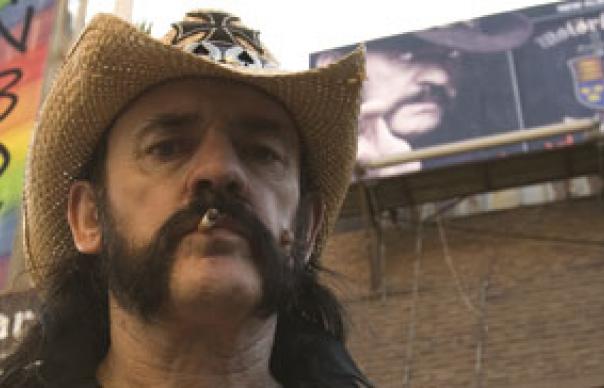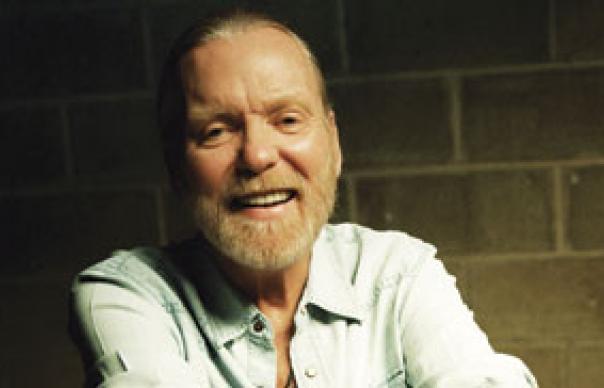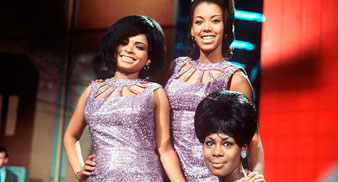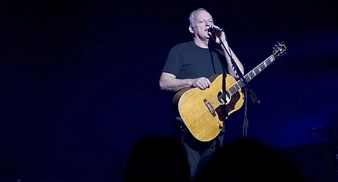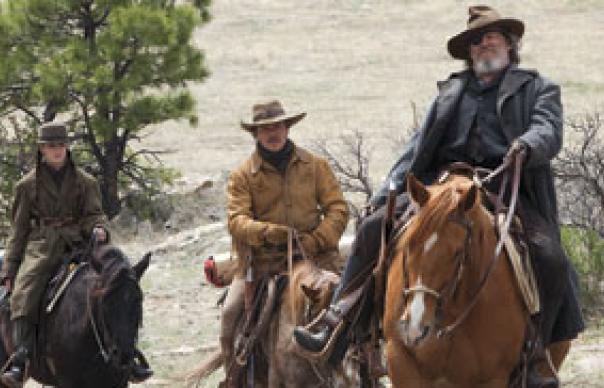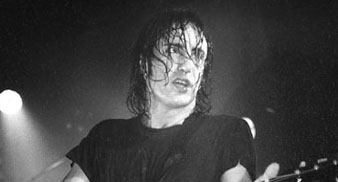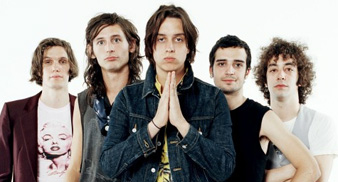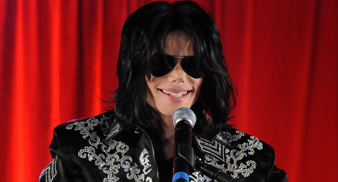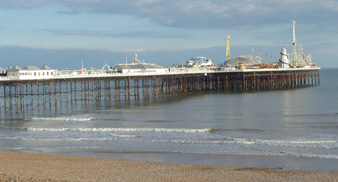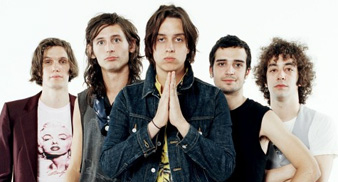16 tracks of the wildest New Orleans soul and R’n’B, featuring Dr John, Allen Toussaint, Fats Domino, Bobby Charles, Professor Longhair and more
I was rummaging on YouTube looking for something else when I came across some footage of Pearl Jam’s Eddie Vedder at an Iraq Veterans Against The War concert. Eddie in the clip ends up playing a song the audience may think he’s actually written, perhaps for the event he’s appearing at, but actually hasn’t. My guess is, though, that even if he’d introduced it as a version of a 1964 protest song by Phil Ochs called
March 2011
Fleet Foxes: “Helplessness Blues”
Perhaps you’ve already picked this up, but the title track from Fleet Foxes’ “Helplessness Blues” has popped up as a free download at the band’s website in the last day. Will save my powder until I write about the whole album, but I think this is terrific: all the charm of the first record, but with a new depth and elaboration (less whimsical, perhaps). It feels like a very comfortable evolution, and one that places Robin Pecknold and his bandmates in a kind of serendipitous middle ground between Grizzly Bear and Joanna Newsom. Give it a play or three and let me know what you think.
Perhaps you’ve already picked this up, but the title track from Fleet Foxes’ “Helplessness Blues” has popped up as a free download at the band’s website in the last day.
The Fourth Uncut Playlist Of 2011
A few more nice things this week, not least the new Chris Forsyth album, which features some assistance from various bits of the Helix/Hans Chew axis. I think I might tackle them both for my next magazine column, but bear with me. Not everything here I’m keen on, I should say. Also, it may not be a good idea to keep asking me about the REM album… 1. Low – C’Mon (Sub Pop) 2. Big Blood & The Bleedin’ Hearts – Big Blood & The Bleedin’ Hearts (http://freemusicarchive.org/music/Big_Blood/) 3. Bonnie ‘Prince’ Billy & The Cairo Gang – Island Brothers/ New Wonder (Domino) 4. EMA – The Grey Ship (Souterrain Transmissions) 5. Daughters Of The Sun – Ghost With Chains (Not Not Fun) 6. Chris Forsyth – Paranoid Cat (Family Vineyard) 7. Apache Dropout – Apache Dropout (Family Vineyard) 8. Cults – Go Outside (Columbia) 9. Bibio – Mind Bokeh (Warp) 10. Derrick Carter – Fabric 56 (Fabric) 11. Metal Mountains – Golden Trees (Amish) 12. The Sand Band – All Through The Night (Deltasonic) 13. Deaf Center – Owl Splinters (Type) 14. Big Blood – Dark Country Magic (http://freemusicarchive.org/music/Big_Blood/) 15. Josh T Pearson – The Last Of The Country Gentlemen (Mute) 16. Mystery Record, I’m Afraid 17 D Charles Speer & The Helix – Leaving The Commonwealth (Thrill Jockey) 18. Cornershop Featuring Bubbley Kaur – Cornershop & The Double O Groove Of (Ample Play)
A few more nice things this week, not least the new Chris Forsyth album, which features some assistance from various bits of the Helix/Hans Chew axis. I think I might tackle them both for my next magazine column, but bear with me.
MUSIC DVD: LEMMY
“Don’t tell anyone, but Lemmy’s a really nice guy,” says Mike Inez from Alice In Chains, but it’s part of Ian “Lemmy” Kilmister’s charm that his really-niceness is buried, albeit fairly close to the surface. I should know. I interviewed him in the 1980s in his splendid terraced house in Willesden, every inch of ceiling space taken up with model WWII aircraft, where he got me drunk on vodka and we had our photo taken in the garden together. And then, six weeks later, when I decided, perhaps foolishly, to introduce myself to him again in the Limelight Club when he was talking to some women, Lemmy strangled me. For quite a long time. Things like that tend to stick in the mind. But who, one wonders, is the real Lemmy? This is a man who’s on good terms with one of his sons but has never met the other one. A man who’s “really nice” but has a collection of Nazi memorabilia and has said some odd things about the Holocaust. A confirmed bachelor (no, not that kind) who’s had sex with 1,000 women (“It’s not that many when you consider that I’m 64,” he explains) who also seems entirely gentlemanly with the ladies. And a member of the ultimate hippy group, Hawkwind – he sings, let’s never forget, on their sole hit, “Silver Machine” – who formed a heavy metal group whom the punks loved. Motörhead are a truly great rock band, sometimes underrated because of their cartoony persona. Their best music, from Ace Of Spades to the mournful 1916, is as good as anything in rock music, but most of that greatness is relegated to the second DVD. This documentary – as the title suggests – is, for once, about Lemmy rather than his band. And it looks at its subject by, as it were, walking around his life, spending time with him in Los Angeles and with many and various rock star fans. Along the way we meet Lemmy’s son Paul (“What’s the most precious thing in this apartment?” asks the interviewer and Lemmy replies, “My son”) and various fans. There’s Dave Grohl trading anecdotes about the crapness of The Darkness, Billy Bob Thornton and Lemmy discussing country music, and a slightly unexpected cameo from Jarvis Cocker concerning Hawkwind (sadly, Lemmy and Jarvis do not meet and record an album together). Also on hand are members of Lemmy’s three great bands: The Rockin’ Vickers, Hawkwind and Motörhead. It’s a DVD crammed with moments. There’s Lemmy’s appearance in Californication, Lemmy and son playing onstage, and Lemmy and his Nazi daggers (he has other swords, it’s only fair to point out, only not as many without swastikas on). The Extras DVD is stuffed with music, more interviews and yet more music. There’s plenty here, and access to Lemmy is both total and well-used. And the real Lemmy? Sometimes it looks to be rather bleak being Lemmy, a man in his sixties living alone in a foreign country, someone with more admirers than friends, someone who’s never married and is estranged from one of his own children. His interests – sex, war and rock, essentially – are teenage (there’s an oddly charming scene where Lemmy meets some Americans who own a WWII German tank and he gets all the technical specs wrong, like your dad admiring a sportscar but not actually being a qualified mechanic). You do feel, as a friend of mine who visited Lemmy in his apartment to interview him told me, that he may well be a lonely man, held together with his obsessions, his Jack and Coke and his collection of (admittedly brilliant) rock anecdotes. That said, the presence of son Paul in his life is clearly an important and humanising one, and he has no shortage of admirers, male and female, queueing up to be with the great man. In the end, this is a man who’s cultivated the Lemmy persona – aggressive on the outside, gruffly warm on the inside – for so long that it’s hard to tell Lemmy from the caricatures and action figures of himself he shows off to the camera. Probably, that’s the way he likes it – although you do feel oddly protective off him as LA rocker after LA rocker lays claim to “Lem” as though we hadn’t had him playing our fruit machines and touring with our punk bands long before Sebastian Bach and The Offspring were thought of. And in the end, underneath that leathery, warty, speed-freak biker persona, there is an intelligent, contradiction-filled, witty, bluff and extraordinary man. Whoever he is. EXTRAS: Plenty. Motörhead live, plus many extended interviews, outtakes and offcuts. DAVID QUANTICK
“Don’t tell anyone, but Lemmy’s a really nice guy,” says Mike Inez from Alice In Chains, but it’s part of Ian “Lemmy” Kilmister’s charm that his really-niceness is buried, albeit fairly close to the surface.
I should know. I interviewed him in the 1980s in his splendid terraced house in Willesden, every inch of ceiling space taken up with model WWII aircraft, where he got me drunk on vodka and we had our photo taken in the garden together. And then, six weeks later, when I decided, perhaps foolishly, to introduce myself to him again in the Limelight Club when he was talking to some women, Lemmy strangled me. For quite a long time. Things like that tend to stick in the mind.
But who, one wonders, is the real Lemmy? This is a man who’s on good terms with one of his sons but has never met the other one. A man who’s “really nice” but has a collection of Nazi memorabilia and has said some odd things about the Holocaust. A confirmed bachelor (no, not that kind) who’s had sex with 1,000 women (“It’s not that many when you consider that I’m 64,” he explains) who also seems entirely gentlemanly with the ladies. And a member of the ultimate hippy group, Hawkwind – he sings, let’s never forget, on their sole hit, “Silver Machine” – who formed a heavy metal group whom the punks loved.
Motörhead are a truly great rock band, sometimes underrated because of their cartoony persona. Their best music, from Ace Of Spades to the mournful 1916, is as good as anything in rock music, but most of that greatness is relegated to the second DVD. This documentary – as the title suggests – is, for once, about Lemmy rather than his band. And it looks at its subject by, as it were, walking around his life, spending time with him in Los Angeles and with many and various rock star fans. Along the way we meet Lemmy’s son Paul (“What’s the most precious thing in this apartment?” asks the interviewer and Lemmy replies, “My son”) and various fans. There’s Dave Grohl trading anecdotes about the crapness of The Darkness, Billy Bob Thornton and Lemmy discussing country music, and a slightly unexpected cameo from Jarvis Cocker concerning Hawkwind (sadly, Lemmy and Jarvis do not meet and record an album together).
Also on hand are members of Lemmy’s three great bands: The Rockin’ Vickers, Hawkwind and Motörhead. It’s a DVD crammed with moments. There’s Lemmy’s appearance in Californication, Lemmy and son playing onstage, and Lemmy and his Nazi daggers (he has other swords, it’s only fair to point out, only not as many without swastikas on). The Extras DVD is stuffed with music, more interviews and yet more music. There’s plenty here, and access to Lemmy is both total and well-used.
And the real Lemmy? Sometimes it looks to be rather bleak being Lemmy, a man in his sixties living alone in a foreign country, someone with more admirers than friends, someone who’s never married and is estranged from one of his own children. His interests – sex, war and rock, essentially – are teenage (there’s an oddly charming scene where Lemmy meets some Americans who own a WWII German tank and he gets all the technical specs wrong, like your dad admiring a sportscar but not actually being a qualified mechanic). You do feel, as a friend of mine who visited Lemmy in his apartment to interview him told me, that he may well be a lonely man, held together with his obsessions, his Jack and Coke and his collection of (admittedly brilliant) rock anecdotes. That said, the presence of son Paul in his life is clearly an important and humanising one, and he has no shortage of admirers, male and female, queueing up to be with the great man.
In the end, this is a man who’s cultivated the Lemmy persona – aggressive on the outside, gruffly warm on the inside – for so long that it’s hard to tell Lemmy from the caricatures and action figures of himself he shows off to the camera. Probably, that’s the way he likes it – although you do feel oddly protective off him as LA rocker after LA rocker lays claim to “Lem” as though we hadn’t had him playing our fruit machines and touring with our punk bands long before Sebastian Bach and The Offspring were thought of. And in the end, underneath that leathery, warty, speed-freak biker persona, there is an intelligent, contradiction-filled, witty, bluff and extraordinary man. Whoever he is.
EXTRAS: Plenty. Motörhead live, plus many extended interviews, outtakes and offcuts.
DAVID QUANTICK
GREGG ALLMAN – LOW COUNTRY BLUES
A liver transplant is a hell of a way to celebrate your 63rd year on the planet, but Gregg Allman had the good sense to make a great album before he went under the knife. Perhaps his face-off with mortality, while not his first, helped energise this roaring return to form. Allman certainly sounds like he’s singing for his life on a set of masterfully played blues classics, drawn from the artists that first excited the pubescent Gregg and his big brother Duane back at the dawn of the 1960s, when the pair would sneak into the shows of BB King in a still-segregated South. King is one of the luminaries represented in a perfectly chosen repertoire that embraces country man Sleepy John Estes, urban bandleader Louis Jordan, Chicago stalwart Magic Sam and – Gregg’s all-time hero – Southern crooner Bobby Bland. The solitary original, “Just Another Rider”, is a defiant but nondescript “I’m still standing” rock-blues. The choice of T Bone Burnett to produce his first solo album in 14 years was surely a no-brainer. Burnett’s prodigious output has included some major refits for stars of a certain age in search of a tasteful upgrade of their still-active talents. Robert Plant/Alison Krauss’ Raising Sand and Elton John/Leon Russell’s The Union are recent cases in point. Low Country Blues has touches of the Americana that Burnett brought to those records – a rolling semi-acoustic “Believe I’ll Go Back Home”, with dancing mandolin for example – but the heart of the album lies in an altogether different place; the roadhouses and ballrooms of 1950s black America. Records from the golden age of rhythm and blues still dazzle, but their sound is compressed and muddy. Here we have a top-class band reproducing the sound one would have actually heard at a Bobby Bland show back in his prime; wickedly spiky electric guitar, big, purring brass section, rhythm section dragging behind the beat, and up front, a man pouring out his soul. Burnett’s wizardry – an anorak knowledge of vintage analogue equipment with a great ear for atmosphere – lends Low Country sonic charm, and a five-star band do the rest. Alongside Burnett’s usual rhythm section there’s Dr John, whose teasing piano is a constant, background presence, while Doyle Bramhall II proves he’s the young axeman to watch (Doyle I is also a guitar slinger of eminence). His playing, say on Muddy Waters’ “I Can’t Be Satisfied” has an unusual grace. Allman takes to the spotlight with the assurance of a man who’s been singing the blues for half a century. The Allman Brothers Band may have helped originate the bragging Southern boogie of Lynyrd Skynyrd et al, but their allegiance to the blues always gave them a spine others lacked, even if the band never recovered from the loss of the trailblazing Duane. Low Country Blues reshapes Allman’s personal narrative into that of modern bluesman, craggy and besuited on the cover. It’s a record some distance from the jam band aesthetic and dogged rock of 1969’s The Allman Brothers Band and its ‘Gruntin’ Gregg’ vocals, further still from Gregg’s various midlife follies, though the toll of failed marriages (Cher! Twice!) is there in Gregg’s testimony on Amos Milburn’s “Tears Tears Tears”; “I believed it when she told such sweet and lovely lies”. Gregg and T Bone vary the pace and style with aplomb. After the opening, over-inflated “Floating Bridge” we go to the country moan of “Devil Got My Woman” with dobro and slide. “Blind Man” is big band blues plucked from Bobby Bland’s heyday. “Please Accept My Love” is lesser-known BB King given a sumptuous horn coda. Magic Sam’s “My Love Is Your Love” and Otis Rush’s “Checking On My Baby” take us to West Side Chicago for slow, hard lessons in love. The closing “Rolling Stone”, with Allman’s B-3 organ up front, is a southern swamp thing, with Rebennack’s gris-gris piano and Bramhall’s slide helping cook up an atmosphere. Like the opener, it promises more than it delivers, but pretty much everything in between rings the bell. NEIL SPENCER Q+A GREGG ALLMAN You made the record before you got your new liver. What kind of shape were you in? I was feelin’ pretty damn good. The music lifted me up. Everything fell right into place. I expected to be in the studio at least three weeks, and we cut 15 tracks in 11 days. I put a pilot vocal on every one of ’em, but a couple of ’em were keepers, and there wasn’t no denyin’ it. “Please Accept My Love” was a first take. It came across nicely – I was stone in the mood. How did this experience differ from your band and solo projects? When you have just the head chef and the very professional cats he’s workin’ with, you all get together and they say, “How do you want this”? The communication was just so right-fucking-on. They seemed to know just what I wanted, and I wasn’t totally sure myself, because it was different songs, different settings and they had access to every instrument anybody could want. It was a big sandbox with all the toys, and it was a whole lot of fun. Everybody kept smilin’, and there was no sign of any bullshit. Everything on the album seems authentically vintage. It sounds like it should be on a scratchy old 78, with the stylus buried down in the record, hitting potholes in the grooves [laughs]. It was really happening, I’ll tell ya. I can’t wait to do another. You’ve said you want T Bone to produce the next Allman Brothers album. I don’t know if it’d work or not. I don’t know if T Bone would be into it, or if anybody’d be into it. But the Brothers wanted to learn “Just Another Rider” yesterday when we was at rehearsal. INTERVIEW: BUD SCOPPA
A liver transplant is a hell of a way to celebrate your 63rd year on the planet, but Gregg Allman had the good sense to make a great album before he went under the knife. Perhaps his face-off with mortality, while not his first, helped energise this roaring return to form. Allman certainly sounds like he’s singing for his life on a set of masterfully played blues classics, drawn from the artists that first excited the pubescent Gregg and his big brother Duane back at the dawn of the 1960s, when the pair would sneak into the shows of BB King in a still-segregated South.
King is one of the luminaries represented in a perfectly chosen repertoire that embraces country man Sleepy John Estes, urban bandleader Louis Jordan, Chicago stalwart Magic Sam and – Gregg’s all-time hero – Southern crooner Bobby Bland. The solitary original, “Just Another Rider”, is a defiant but nondescript “I’m still standing” rock-blues.
The choice of T Bone Burnett to produce his first solo album in 14 years was surely a no-brainer. Burnett’s prodigious output has included some major refits for stars of a certain age in search of a tasteful upgrade of their still-active talents. Robert Plant/Alison Krauss’ Raising Sand and Elton John/Leon Russell’s The Union are recent cases in point.
Low Country Blues has touches of the Americana that Burnett brought to those records – a rolling semi-acoustic “Believe I’ll Go Back Home”, with dancing mandolin for example – but the heart of the album lies in an altogether different place; the roadhouses and ballrooms of 1950s black America.
Records from the golden age of rhythm and blues still dazzle, but their sound is compressed and muddy. Here we have a top-class band reproducing the sound one would have actually heard at a Bobby Bland show back in his prime; wickedly spiky electric guitar, big, purring brass section, rhythm section dragging behind the beat, and up front, a man pouring out his soul.
Burnett’s wizardry – an anorak knowledge of vintage analogue equipment with a great ear for atmosphere – lends Low Country sonic charm, and a five-star band do the rest. Alongside Burnett’s usual rhythm section there’s Dr John, whose teasing piano is a constant, background presence, while Doyle Bramhall II proves he’s the young axeman to watch (Doyle I is also a guitar slinger of eminence). His playing, say on Muddy Waters’ “I Can’t Be Satisfied” has an unusual grace.
Allman takes to the spotlight with the assurance of a man who’s been singing the blues for half a century. The Allman Brothers Band may have helped originate the bragging Southern boogie of Lynyrd Skynyrd et al, but their allegiance to the blues always gave them a spine others lacked, even if the band never recovered from the loss of the trailblazing Duane.
Low Country Blues reshapes Allman’s personal narrative into that of modern bluesman, craggy and besuited on the cover. It’s a record some distance from the jam band aesthetic and dogged rock of 1969’s The Allman Brothers Band and its ‘Gruntin’ Gregg’ vocals, further still from Gregg’s various midlife follies, though the toll of failed marriages (Cher! Twice!) is there in Gregg’s testimony on Amos Milburn’s “Tears Tears Tears”; “I believed it when she told such sweet and lovely lies”.
Gregg and T Bone vary the pace and style with aplomb. After the opening, over-inflated “Floating Bridge” we go to the country moan of “Devil Got My Woman” with dobro and slide. “Blind Man” is big band blues plucked from Bobby Bland’s heyday. “Please Accept My Love” is lesser-known BB King given a sumptuous horn coda. Magic Sam’s “My Love Is Your Love” and Otis Rush’s “Checking On My Baby” take us to West Side Chicago for slow, hard lessons in love. The closing “Rolling Stone”, with Allman’s B-3 organ up front, is a southern swamp thing, with Rebennack’s gris-gris piano and Bramhall’s slide helping cook up an atmosphere. Like the opener, it promises more than it delivers, but pretty much everything in between rings the bell.
NEIL SPENCER
Q+A
GREGG ALLMAN
You made the record before you got your new liver. What kind of shape were you in?
I was feelin’ pretty damn good. The music lifted me up. Everything fell right into place. I expected to be in the studio at least three weeks, and we cut 15 tracks in 11 days. I put a pilot vocal on every one of ’em, but a couple of ’em were keepers, and there wasn’t no denyin’ it. “Please Accept My Love” was a first take. It came across nicely – I was stone in the mood.
How did this experience differ from your band and solo projects?
When you have just the head chef and the very professional cats he’s workin’ with, you all get together and they say, “How do you want this”? The communication was just so right-fucking-on. They seemed to know just what I wanted, and I wasn’t totally sure myself, because it was different songs, different settings and they had access to every instrument anybody could want. It was a big sandbox with all the toys, and it was a whole lot of fun. Everybody kept smilin’, and there was no sign of any bullshit.
Everything on the album seems authentically vintage.
It sounds like it should be on a scratchy old 78, with the stylus buried down in the record, hitting potholes in the grooves [laughs]. It was really happening, I’ll tell ya. I can’t wait to do another.
You’ve said you want T Bone to produce the next Allman Brothers album.
I don’t know if it’d work or not. I don’t know if T Bone would be into it, or if anybody’d be into it. But the Brothers wanted to learn “Just Another Rider” yesterday when we was at rehearsal.
INTERVIEW: BUD SCOPPA
Marvelettes co-founder Gladys Horton passes away
Marvelettes co-founder Gladys Horton has died at the age of 66. The singer's son Vaughn Thornton confirmed that she passed away on Wednesday (January 26) at a nursing home in Sherman Oaks in California. She had been recovering from a stroke, reports BBC News. Horton formed the Marvelettes, who were signed to Berry Gordy's Motown label, with her schoolfriend Georgia Dobbins in 1960. They had their only US Number One single a year later with 'Please Mr Postman', which was also the first chart-topper for the label. The Beatles later covered the track, as did The Carpenters who took it to the top of the US charts again in 1974. Horton left the band in 1967 to get married, having been replaced as the group's lead singer by bandmate Wanda Young Rogers. Latest music and film news on Uncut.co.uk. Uncut have teamed up with Sonic Editions to curate a number of limited-edition framed iconic rock photographs, featuring the likes of Pink Floyd, Bob Dylan and The Clash. View the full collection here.
Marvelettes co-founder Gladys Horton has died at the age of 66.
The singer’s son Vaughn Thornton confirmed that she passed away on Wednesday (January 26) at a nursing home in Sherman Oaks in California. She had been recovering from a stroke, reports BBC News.
Horton formed the Marvelettes, who were signed to Berry Gordy‘s Motown label, with her schoolfriend Georgia Dobbins in 1960. They had their only US Number One single a year later with ‘Please Mr Postman’, which was also the first chart-topper for the label.
The Beatles later covered the track, as did The Carpenters who took it to the top of the US charts again in 1974.
Horton left the band in 1967 to get married, having been replaced as the group’s lead singer by bandmate Wanda Young Rogers.
Latest music and film news on Uncut.co.uk.
Uncut have teamed up with Sonic Editions to curate a number of limited-edition framed iconic rock photographs, featuring the likes of Pink Floyd, Bob Dylan and The Clash. View the full collection here.
Pink Floyd guitarist Dave Gilmour’s son charged over student riots
The son of Pink Floyd guitarist Dave Gilmour has been charged with violent disorder in relation to last year's student protests in London. Charlie Gilmour, 21, was pictured swinging from a Union flag on the Cenotaph in Whitehall on December 9 while protesting about student fees. The Cambridge University student has also been charged with the theft of a mannequin leg during the protests, reports the Press Association. He will appear London's City of Westminster Magistrates' Court on February 10 to face the charges. Speaking in reaction to his December arrest, Gilmour described his actions as a "moment of idiocy" and claimed not to know the significance of the Cenotaph, which commemorates Britain's war dead. Latest music and film news on Uncut.co.uk. Uncut have teamed up with Sonic Editions to curate a number of limited-edition framed iconic rock photographs, featuring the likes of Pink Floyd, Bob Dylan and The Clash. View the full collection here.
The son of Pink Floyd guitarist Dave Gilmour has been charged with violent disorder in relation to last year’s student protests in London.
Charlie Gilmour, 21, was pictured swinging from a Union flag on the Cenotaph in Whitehall on December 9 while protesting about student fees.
The Cambridge University student has also been charged with the theft of a mannequin leg during the protests, reports the Press Association.
He will appear London‘s City of Westminster Magistrates’ Court on February 10 to face the charges.
Speaking in reaction to his December arrest, Gilmour described his actions as a “moment of idiocy” and claimed not to know the significance of the Cenotaph, which commemorates Britain’s war dead.
Latest music and film news on Uncut.co.uk.
Uncut have teamed up with Sonic Editions to curate a number of limited-edition framed iconic rock photographs, featuring the likes of Pink Floyd, Bob Dylan and The Clash. View the full collection here.
TRUE GRIT
Directed by Joel and Ethan Coen
Starring Jeff Bridges, Matt Damon, Hailee Steinfeld
The new Coen brothers film is a remake of the popular 1969 Western that starred John Wayne as cantankerous, one- eyed US Marshal Rooster Cogburn, a role played here by Jeff Bridges. Wayne won his only Best Actor Oscar for his rowdy turn as Cogburn, playing the part broadly, cheerfully sending himself up. But this is very much Bridges’ carefully nuanced take on Rooster Cogburn, and he brings his own piss, vinegar and grumpy bluster to the part.
We hear plenty about Reuben Cogburn before we finally meet him. According to the sheriff at Fort Smith, Arkansas, Cogburn is “a pitiless man, double tough, fear don’t enter into his thinking”. But still, he “loves to pull a cork”.
Cogburn is being sought out by Mattie Ross, a 14 year-old girl who’s after retribution for her father’s murder – “robbed of life, a horse and two California gold pieces he carried in his pocket”. Mattie eventually finds Cogburn on the toilet.
It’s hardly an auspicious introduction.
Craggy and irascible, marinated in whisky, he sleeps in a rope bed in a room behind a Chinese grocery. “A love of decency does not abide in you,” were, we learn, the parting words of his second wife. As a US Marshal, he claims to have killed “12, 15, stopping men in flight or defending myself et cetera”, but the count is far higher. Jeff Bridges looks fantastic, incidentally. His Cogburn is a solid, meaty man, like an elderly grizzly bear, with his one eye blazing away from behind an impressively shaggy grey beard. Unlike Wayne’s burlesque take on Cogburn, there’s an undercurrent of darkness in Bridges’ performance; a cumulative sense of what he’s done and what he’s seen having taken its toll. Bridges has previously done much excellent work in Westerns – Bad Company, Rancho Deluxe and Heaven’s Gate among them. But the most pertinent here might well be Walter Hill’s tremendous Wild Bill, where he played James Butler Hickok with the kind of gruff intransigency he also displays as Marshal Cogburn.
Mattie hires Cogburn to pursue her father’s killer, farm hand Tom Chaney (Josh Brolin), who’s fled into Indian country, where the law at Fort Smith has no jurisdiction. “It will not be a daisy-picking expedition,” Mattie is told. So she also hires a Texas Ranger, LeBoeuf (Matt Damon, mercifully obliterating the memory of Glen Campbell’s wooden performance in the original), who’s been chasing Chaney himself for several months. LeBoeuf is pompous, condescending: “I have lapped filthy water from a hoof print, and been glad for it.”
The Coens are often drawn to such mismatched couplings – the Dude and Walter in The Big Lebowski, Steve Buscemi and Peter Stormare’s hitmen in Fargo, the triple bill of stupids in O, Brother, Where Art Thou?. And typically, they enjoy the friction between Cogburn and LeBoeuf as they head deep into the Choctaw Nation with Mattie in tow. It’s true, too, that the Coens have always made splendid use of language in their films – the regional dialects in Fargo spring to mind, or the rich Southern idioms to be found in O Brother… Here they roll around in Portis’ courtly, old-fashioned vernacular, particularly relishing the fractious back-and-forth between Cogburn and LeBoeuf. “I am a foolish old man,” howls Cogburn, “who has been dragged into a wild goose chase by a harpy in trousers and a nincompoop.”
The trek into Indian country moves into wild stretches of woodland and open plains experiencing the first dustings of winter snow – all beautifully shot by the Coens’ regular cinematographer Roger Deakins in earthy, rustic tones. There’s an unsettling encounter with a man dressed in a bear skin who practises dentistry for the Indians, and a fatal one with two outlaws holed up in a shack, before they finally catch up with Chaney. He has taken up with ‘Lucky’ Ned Pepper (played with admirable menace by Barry Pepper, channelling Robert Duvall in the 1967 original) and his gang – “a congress of louts” with impressively bad teeth. Inevitably, this is where we finally learn who really has true grit.
In many ways, True Grit might appear to be an unusually straight-faced genre exercise for the Coens. If their Oscar winner No Country For Old Men felt like a contemporary Western, then True Grit seems very much the real deal, with the high country locations redolent of, say, Anthony Mann’s films. Conspicuously, there is none of the brothers’ usual up-ending of their chosen genre – none of the sly spin they brought to, say, film noir in Miller’s Crossing or vintage screwball comedies in The Hudsucker Proxy. The film has the Coens’ wintry humour, sure – but that was always a major attribute of Portis’ novel. If anything, True Grit feels very much part of the Coens ongoing exploration of times and places in American history. And, as with Marge Gunderson in Fargo, the Coens locate at the heart of True Grit a feisty, morally upstanding female character.
Hailee Steinfeld is tremendous as the tenacious Mattie – “You give very little sugar with your pronouncements,” LeBoeuf admonishes her rather sourly. “I admire your salt,” she is told approvingly elsewhere, and you certainly have to give props to a character who spends one night early on in the film sleeping in an undertaker’s office surrounded by corpses: “I felt like Ezekiel in the valley of dry bones,” she admits unwaveringly. Matt Damon is equally fine here on his first outing for the Coens. “Never doubt the Texas Ranger, ever stalwart,” he crows. But the peacock preening aside, Damon gradually, unshowily reveals LeBoeuf to be a staunch ally for Mattie and Cogburn.
Of course, you may conclude that True Grit is really about Jeff Bridges, giving another peerless performance for the Coens – his first since The Big Lebowski. It’s true enough that Bridges is currently enjoying a long-deserved purple patch – his Oscar for Crazy Heart last year, while last month, incredibly, he toplined a major studio blockbuster, Tron: Legacy. Without sounding churlish, one invariably wishes these successes had come instead for many of the frankly better films he’s made in the past 40 years. But certainly, with True Grit he’s done great work in a great film. When we see Cogburn in full flight – riding against four armed men – this is rousing stuff. You’d like to think the Duke himself would be applauding the Dude from afar.
MICHAEL BONNER
The Psychic Paramount, Daughters Of The Sun, Metal Mountains
Plenty of interesting psych stuff accumulated here over the past few weeks, while I’ve been distracted by a bunch of other things. A bit of a roundup today, kicking off with Daughters Of The Sun, whose “Ghost With Chains” is forthcoming on Not Not Fun. The label’s significant, because NNF seem to have found a sub for the recently-demised Pocahaunted, given that “Ghost With Chains” draws from the same well of strung-out, washed-out, groan-heavy hypno-dirge. Not sure they’ll be making cute indie-pop in a couple of years like Best Coast: Daughters Of The Sun come from Minneapolis (two Minnesota bands in two days must be a record, and this is my 801st post, incidentally) and appear to have been around a while. Good band; if anyone has more info/knowledge, please share. I’m on safer ground, I guess, with Metal Mountains and “Golden Trees”, out about now on Amish. Metal Mountains are essentially three survivors of the ‘90s band Tower Recordings, often – and justifiably – cited as key precursors of the latterday proliferation of homebaked underground bands on a, for want of a better phrase, acid-folk trip. Maybe the best known of the three Metal Mountains players, alongside Helen Rush and the much-employed violinist Samara Lubelski, is Pat Gubler, whose records as PG Six have been very important to me these past few years. It’s Rush here, though, who seems to be taking the lead, pulling the band through some pleasingly-adjusted, brackish reveries that bear comparison, perhaps, with Espers. From “Structures In The Sun” on, there’s a great feel of tempered, candlelit freakout, maybe a fraction heavier on atmosphere than tune, but that’s not a problem. Not much tempered about The Psychic Paramount, as you might imagine from the name. “The Psychic Paramount II”, on No Quarter (home of Endless Boogie, among other things) begins with a great eruptive roar, and initially seems kin to the blast and flail tradition of Monoshock and early Comets On Fire. Soon enough, though, a plot emerges, locating the trio (from New York, I think) as closer to Yamamotor-era Boredoms, when the chaos took on the form of ecstatic ritual circa “Super Æ”. If anything, there might actually be a tiny bit too much form for my taste in places, where the Psychic Paramount’s hard-driving spacerock takes on a mathematical aspect, a little more like, say, Kinski or Mugstar. But this is pretty cool; wonder how it works live?
Plenty of interesting psych stuff accumulated here over the past few weeks, while I’ve been distracted by a bunch of other things. A bit of a roundup today, kicking off with Daughters Of The Sun, whose “Ghost With Chains” is forthcoming on Not Not Fun.
Tori Amos pens musical
A musical written by Tori Amos is set to debut at London's National Theatre next year. No details of the musical have been officially announced yet, but in 2007 it was revealed that the singer was working on a theatre adaptation of The Light Princess, an 1864 fairy tale by George MacDonald. The new production is set to open at the Southbank venue's Lyttelton auditorium in April 2012, reports BBC News. See Nationaltheatre.org.uk for venue information. Tori Amos' last album, 'Midwinter Graces', was released in 2009. Latest music and film news on Uncut.co.uk. Uncut have teamed up with Sonic Editions to curate a number of limited-edition framed iconic rock photographs, featuring the likes of Pink Floyd, Bob Dylan and The Clash. View the full collection here.
A musical written by Tori Amos is set to debut at London‘s National Theatre next year.
No details of the musical have been officially announced yet, but in 2007 it was revealed that the singer was working on a theatre adaptation of The Light Princess, an 1864 fairy tale by George MacDonald.
The new production is set to open at the Southbank venue’s Lyttelton auditorium in April 2012, reports BBC News.
See Nationaltheatre.org.uk for venue information.
Tori Amos‘ last album, ‘Midwinter Graces’, was released in 2009.
Latest music and film news on Uncut.co.uk.
Uncut have teamed up with Sonic Editions to curate a number of limited-edition framed iconic rock photographs, featuring the likes of Pink Floyd, Bob Dylan and The Clash. View the full collection here.
Trent Reznor set to continue film score work
Trent Reznor has said he would like to continue to his film score work by getting to grips with the music for more traditional Hollywood films.
The Nine Inch Nails man is celebrating an Oscar nomination for Best Original Score for his work on the The Social Network, an accolade he has described as “surreal, amazing and flattering”.
Speaking to Hollywoodreporter.com, Reznor said of the film: “I didn’t realise it would resonate with people as much as it has. It’s been amazing and flattering to see what’s happened.”
He said he would “absolutely” be interested in composing for more mainstream Hollywood films. “I’m interested in the discipline and I’m interested in the challenge of working in the more traditional sense,” he said. “I look at working with [a traditional orchestra] as something I haven’t done yet and I’ve always been intrigued by it. I would be up for that challenge.”
He and co-composer Atticus Ross are currently writing the score for the Hollywood remake of The Girl With The Dragon Tattoo.
Latest music and film news on Uncut.co.uk.
Uncut have teamed up with Sonic Editions to curate a number of limited-edition framed iconic rock photographs, featuring the likes of Pink Floyd, Bob Dylan and The Clash. View the full collection here.
The Strokes still battling ‘hostility and resentment’ says guitarist
The Strokes‘ guitarist Nick Valensi has said there are still “undertones of hostility and resentment” in the band.
The five-piece are gearing up to release their first album in five years, ‘Angles’, on March 21[/url], and Valensi has described the band’s struggle to get the record completed.
“It took time,” he told MySpace Music. “Maybe everyone needed money or something. ‘We gotta pay our mortgage so may as well get this going again.'”
He added: “The mood was and continues to be light and fun and playful, with mild undertones of hostility and resentment, which is just the way of this band. When we hang out and when we work on stuff, it’s great but I’d be lying if I said there wasn’t elements of hostility there. Undertones of hostility and resentment.”
Valensi went on to say that he thinks the long gap between ‘Angles’ and 2006’s ‘First Impressions Of Earth’ will have an impact on how fans receive the new record.
“You take that much time off [and] no matter what you do it’s not going to be as good as people want it to be,” he said. “I feel like no matter what the record is, or how hard we worked on it, or how much we like it, it’s not going to live up to people’s expectations only because of those five years between the last one and this one.
“If we had just released this a year or two after the last one, I imagine it would have gone better.”
Latest music and film news on Uncut.co.uk.
Uncut have teamed up with Sonic Editions to curate a number of limited-edition framed iconic rock photographs, featuring the likes of Pink Floyd, Bob Dylan and The Clash. View the full collection here.
Low: “C’Mon”
Since I saw them play a series of shows at the Union Chapel in Highbury a good decade ago, I’ve always felt that Low’s music suited churches. Not because of the religious connotations as such, more because they were so suited to the space, stillness and reverberations inherent in those kind of buildings. It makes sense, then, that Low’s new album, “C’Mon”, has been recorded in a church close to their home in Duluth, Minnesota, the better to capture the trio’s monumental gravities. Unlike the frictional, treated environments of “Drums And Guns”, “C’Mon” represents a kind of return to a notionally purer Low, to the sound of an enormously controlled and self-contained band playing in a very big room. It captures a lot of what many of us cherish most about the band; a sound which has incrementally evolved over the space of 15-odd years, but still remained utterly identifiable. While not touching on the more experimental textures of the band represented on “Drums And Guns”, “Songs For A Dead Pilot”, “Bombscare” and so on, “C’Mon” would work pretty well as an introduction to this most stately and moving of contemporary American bands. One of the things that’s so interesting about their sound is how it identifiably emerges from an obliterated post-punk/post-hardcore continuum, but simultaneously flaunts affinities with a much longer lineage of classic folk-rock. When I listen to Low, I often end up thinking a lot about Neil Young, and how they seem to instinctively grasp his stunned dynamics, his uncanny harmonies, on a level that’s far more profound than most of his descendants (please check their collaboration with The Dirty Three on “Down By The River” if you can, an object lesson in impactful understatement). Alan Sparhawk might more overtly reference Young in his work with the Retribution Gospel Choir, but I hear resonances all through “C’Mon”. Sparhawk has recently talked up the new record as akin to Richard & Linda Thompson’s “Shoot Out The Lights”, as an anatomy of a relationship, though the prevailing theme – the trials and consolations of a long-term relationshop, as far as I can tell – is maybe closer to something like Yo La Tengo’s “And Then Nothing Turned Itself Inside Out”. The Linda Thompson reference isn’t bad, though, at pinpointing the appeal of Mimi Parker’s voice: its affectingly muscular purity. I frequently think of Parker as kin to Judy Collins, which is a bit baffling, since while I love Parker’s voice, Collins tends to come across as cloying and sanctimonious to me. Even by her standards, she has some extraordinary songs on “C’Mon”: “Especially Me” and “You See Everything”, the latter having, I think, faint echoes of Young’s “Round And Round”. At this point, “C’Mon” feels like the Low album I’ve liked most since “Things We Lost In The Fire”; no mean praise. Pivotal to this are a couple of Sparhawk-fronted songs: “Nothing But Heart”, one of those hard-punching, epically repetitive Low songs, this time elevated further by a solo from Nels Cline. Then there’s “Witches”, which taps into that luxuriant Youngian wallow again and finds Sparhawk dealing with visions, childhood nightmares and a confusing frustration with men who “act like Al Green”, something which evidently makes him so angry he can’t articulate exactly what the problem is. It’s a magnificent song, one of the best I’ve heard in a while, and one, I think, of the best songs in a catalogue that has stealthily built up into one of the strongest of the past two decades. A good few of these songs are out there in live versions on Youtube, I think; if you have time, hunt them down and drop me a line.
Since I saw them play a series of shows at the Union Chapel in Highbury a good decade ago, I’ve always felt that Low’s music suited churches. Not because of the religious connotations as such, more because they were so suited to the space, stillness and reverberations inherent in those kind of buildings.
Michael Jackson’s doctor Conrad Murray trial date set
Michael Jackson‘s doctor Conrad Murray will stand trial this March accused of involuntary manslaughter relating to the singer’s death in June 2009.
The trial, which is expected to last for six weeks, will begin on March 28. Murray has pleaded not guilty, meaning he could be sentenced to four years in prison if convicted. BBC News reports that judges are considering whether to allow television coverage of the trial.
Speaking in court in Los Angeles, Murray said: “I am an innocent man.”
A preliminary hearing earlier this month saw several witnesses testify that he had given Jackson powerful anaesthetics in the hours before his death, and that he had subsequently tried to hide drug paraphernalia.
Murray‘s defence team said that it has not yet been proven how he caused the singer’s death, with defence attorney Ed Chernoff telling reporters outside the court: “Dr Murray is looking forward to finally telling his side of the story.”
Latest music and film news on Uncut.co.uk.
Uncut have teamed up with Sonic Editions to curate a number of limited-edition framed iconic rock photographs, featuring the likes of Pink Floyd, Bob Dylan and The Clash. View the full collection here.
Patti Smith writing a detective novel
Patti Smith has announced she is writing a detective novel.
The singer confirmed details of her next book while speaking at the Royal Geographic Society in London last night (January 25) as part of the Intelligence Squared series of talks.
“I’ve been working on a detective story that starts at St Giles-in-the-Fields in London for the last two years,” she explained.
The singer said that the book had been inspired by a previous trip to the UK capital, and that she now always visits the churchyard “where [the idea] came to me” when in London.
She jokingly suggested that the book was approximately “68 per cent” done, adding that she “loved detective stories” having been a fan of Sherlock Holmes and US crime author Mickey Spillane as a girl.
Smith, who discussed her recent memoir Just Kids and took questions from the audience, performed an acoustic version of her song ‘My Blakean Year’ after the talk.
Latest music and film news on Uncut.co.uk.
Uncut have teamed up with Sonic Editions to curate a number of limited-edition framed iconic rock photographs, featuring the likes of Pink Floyd, Bob Dylan and The Clash. View the full collection here.
Amy Winehouse announces first European festival slot of 2011
Amy Winehouse has confirmed her first European festival slot of 2011 at Spain’s BBK Live event in July.
The event takes place on July 7-9 in Bilbao, with Crystal Castles, The Chemical Brothers, Jack Johnson and The Black Crowes also on the bill.
Coldplay had already been announced as one of the headliners of the event. See Bilbaobbklive.com for more information.
Latest music and film news on Uncut.co.uk.
Uncut have teamed up with Sonic Editions to curate a number of limited-edition framed iconic rock photographs, featuring the likes of Pink Floyd, Bob Dylan and The Clash. View the full collection here.
PJ Harvey: “Let England Shake”
The past few days I’ve been reading, on Rob Young’s recommendation, Alexandra Harris’ Romantic Moderns, an excellent survey of how British artists and writers in the mid-20th Century tried to reconcile a modernist impulse with the residual lure of English cultural traditions. This morning, I was deep in the chapter on artistic responses during wartime; studies and collections on the subject of Englishness designed as a kind of emotional consolation in the midst of battle and austerity. It provided an interesting analogue to PJ Harvey’s “Let England Shake”, which I was listening to at the same time, a record about nationality and the meaning of nationality, especially in times of war. I’ve been meaning to write about this quite brilliant record for the best part of two months now, and I’m conscious that a lot of what I could say has been effectively superseded by Andrew Mueller’s review in the new issue of Uncut, the work of a man who knows far more about war than I could ever wish to. I can’t recommend his review enough, but I still think it’s worth adding a few notes; after all, one of “Let England Shake”’s many virtues is its easy deployment of ideas, its capacity to be thought-provoking. Increasingly, it’s becoming very clear that PJ Harvey approaches her albums as distinct and self-contained projects, each with a finely-wrought, cohesive and fastidious plan behind the set of songs. With some serendipity, “Let England Shake” arrived at Uncut around the same time as Anna Calvi’s debut album: not a terrible piece of work, by any stretch, but one which seems to take the most obvious and commercial of PJ Harvey’s creative personae and runs with it. Calvi’s album, with its slightly hackneyed, crimson-lipped sense of melodrama, feels very much like the sort of record the more pragmatic parts of the record industry would have liked Harvey to make as the follow-up to “To Bring You My Love”. Instead, she embarked on an unpredictable and generally hugely rewarding trajectory away from what was expected of her, so that in 2011 she’s arrived at an unusual place for an artist of her generation: a genuine auteur who, in spite of being signed to a major label, appears able to develop her career and follow her muse into relatively esoteric corners, more or less unaffected by marketing expediencies. That said, “Let England Shake” is full of catchy, insidious tunes, much more immediate than its uncanny and lovely predecessor, “White Chalk”. It remains, though, a strange-sounding record, at once strident and ethereal. A song like “The Words That Maketh Murder” seems to roll along at an odd bucolic skank, while the spidery guitar jangle vaguely recalls – not for the last time on “Let England Shake” – the hazier reveries concocted by Johnny Marr in the earlyish days of The Smiths. There’s something of The Cocteau Twins here and elsewhere, too; the occasional whoop in Harvey’s voice seems pitched in an unlikely space between Liz Fraser and Ari Up. As the album begins with the title track, the high register she unveiled on “White Chalk” has gained a new pointedness; if the word weren’t loaded with pejorative implications, “witchy” might not be a bad word for it. With the rustic brass puncturing songs at unexpected moments, and a predominantly rickety, handcrafted air, “Let England Shake” sometimes feels like indigenous folk music modernised in an eccentric way, not least when Harvey’s voice is pitted against the blokeish, conversational harmonies of John Parish and Mick Harvey. I keep thinking of Trembling Bells, and their way of finding a new method of negotiating with English tradition. But then again, there’s a spindliness to the sound which also, less canonically, seems to echo a certain strain of wan indie-pop, given an unexpected new imperative: “On Battleship Hill”, in particular, is reminiscent in parts of Belle & Sebastian’s “The State I Am In” (no bad thing, I should say). As an album, dense with allusion and knowledge, constructed with a meticulous thematic unity which extends across both sound and content, and performed with a vigour and passion which belies any suspicions of academic detachment, it’s an unqualified success; a marker for major British records in 2011. As ever, I’d be interested to know what you think, when you’ve heard it…
The past few days I’ve been reading, on Rob Young’s recommendation, Alexandra Harris’ Romantic Moderns, an excellent survey of how British artists and writers in the mid-20th Century tried to reconcile a modernist impulse with the residual lure of English cultural traditions.
Warpaint, Friendly Fires, Villagers to play Great Escape 2011
Friendly Fires, Warpaint and Villagers are among the acts confirmed to play this year’s Great Escape festival in Brighton.
The three-day event takes place on May 12-14 at various venues in the city, and Uncut will once again be showcasing a number of bands throughout it. More acts are due to be announced for the festival soon and see Escapegreat.com for more information.
The line-up so far for The Great Escape is:
Friendly Fires
Katy B
Warpaint
Villagers
Twin Shadow
Brother
Little Dragon
D/R/U/G/S
Becoming Real
PVT
Dutch Uncles
Tribes
SBTRKT
The Heartbreaks
Spark
Nedry
Worriedaboutsatan
Big Deal
The Soft Moon
Teeth
Marques Toliver
Tripwires
Lucy Swann
Vision of Trees
Seams
The Holidays
The Jezabels
Said the Whale
Team Me
Bonjay
Deep Sea Arcade
Seekae
The Mountain and the Trees
Winter Gloves
DZ Deathrays
Woodhands
gaBle
Tickets are on sale now.
The Strokes announce new album release details
The Strokes have revealed the tracklisting for their fourth album ‘Angles’.
The album is set to be released on March 21 in the UK and March 22 in the US, with the first single, which does not have a release date yet, set to be ‘Under Cover Of Darkness’.
‘Life Is Simple’ is the only song on ‘Angles’ that survived from sessions the band recorded with producer Joe Chiccarelli early last year. They then decided to record in guitarist Albert Hammond Jr‘s own studio, taking on production duties themselves.
The album will be the New York band’s first since 2006’s ‘First Impressions Of Earth’.
The tracklisting of ‘Angles’ is:
‘Machu Picchu’
‘Under Cover of Darkness’
‘Two Kinds of Happiness’
‘You’re So Right’
‘Taken For A Fool’
‘Games’
‘Call Me Back’
‘Gratisfaction’
‘Metabolism’
‘Life Is Simple In The Moonlight’
Latest music and film news on Uncut.co.uk.
Uncut have teamed up with Sonic Editions to curate a number of limited-edition framed iconic rock photographs, featuring the likes of Pink Floyd, Bob Dylan and The Clash. View the full collection here.
Lily Allen featured in Bible studying course
Lily Allen has backed The Bishop Of Sheffield‘s calls for people to listen to her song ‘The Fear’ as part of a Bible study course.
The expletive-free version of the song was included in a five-week course aimed at church-goers in the city in preparation for Easter on account of its theme of materialism in contemporary culture, reports BBC News.
Writing on her Twitter page, Twitter.com/lilyroseallen, the singer linked to the story and with the message: “Quite right!”
The Right Reverend Dr Steven Croft, who drew up the course, said that ‘The Fear’ saw Allen capture “something of the spirit of the age”.
The song contains the sarcastically-delivered lyrics: “Life’s about film stars and less about mothers /It’s all about fast cars and cussing each other/But it doesn’t matter cause I’m packing plastic/And that’s what makes my life so fucking fantastic”.
However, Croft advised church-goers not to listen to the expletive-ridden version of the track.
Referencing that version of the song, Croft said: “There is a pretty clear instruction in the book to group leaders to check out the lyrics first and to make sure that they use the version that is played on the radio, not the unexpurgated version.”
Latest music and film news on Uncut.co.uk.
Uncut have teamed up with Sonic Editions to curate a number of limited-edition framed iconic rock photographs, featuring the likes of Pink Floyd, Bob Dylan and The Clash. View the full collection here.



